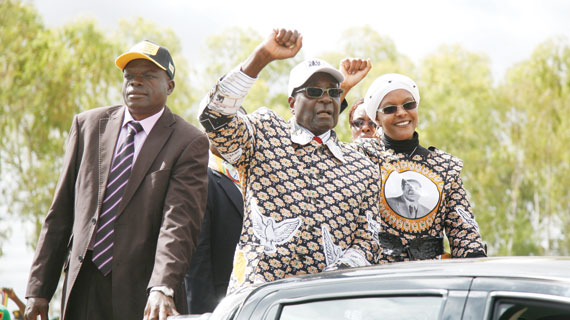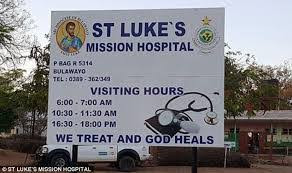
VOTING may have ended in Zimbabwe’s Presidential election, but the controversy around the vote has not.
Report By JEFFREY MOYO, OWN CORRESPONDENT
MDC-T filed a petition last Friday with the country’s Constitutional Court (ConCourt) to declare the election null and void.
President Robert Mugabe won 61% of the 3,4 million votes cast, while Prime Minister Morgan Tsvangirai won 34%. The opposition has asked for fresh polls in 60 days.
In his appeal, Tsvangirai accused an Israeli firm of rigging the election in favour of Mugabe’s Zanu PF and of conniving with the Registrar of Voters and the Zimbabwe Electoral Commission (Zec) to manipulate the country’s voters’ roll.
The firm was said to have been paid 10 million dollars to do so.
But analysts have said the MDC-T knows the court may not rule in its favour.
“Ironically, Morgan Tsvangirai and his party are seeking legal redress from the same court that gave a nod to a Jul. 31 election date when the MDC-T had sought an extension of poll dates.
- Chamisa under fire over US$120K donation
- Mavhunga puts DeMbare into Chibuku quarterfinals
- Pension funds bet on Cabora Bassa oilfields
- Councils defy govt fire tender directive
Keep Reading
“It is doubtful that the same court will this time around rule in their favour,” independent political analyst, Malvern Tigere said. Political analyst Richard Zizhou said that the ConCourt has been put in a difficult position.
“It’s indeed a trying time for the highest court in the land. MDC-T seems to be in possession of overwhelming evidence that the polls were indeed rigged and if the court rules in favour of MDC-T, Mugabe will be furious,” Zizhou told said.
But while the Court challenge hangs in the balance, many Zimbabweans suspected of supporting the MDC-T have already been subjected to violence.
Tawanda Chimhini, director of the Elections Resource Centre, an independent civil society organisation that monitors national elections in Zimbabwe, said that his organisation had been inundated with reports of rising cases of intimidation after the elections.
“We have received reports of intimidation. . . historically there have always been constant cases of intimidation that often follow every election.
“ It is a Zanu PF strategy to deflate members of the opposition parties and vanquish whatever semblance of support the opposition may have,” Chimhini told said.
A heavy police presence in, Harare, has done little to make people feel safe.
Police have mounted water cannons at the MDC-T headquarters in the city in a move to quell possible protests. Vendors like 32-year-old Margret Matevura, who is based in the central business district close to the MDC-T headquarters, have expressed fear about the heavily-armed police presence in the capital.
Alex Rutsito of Highfield said that he and his family have been targeted for allegedly “being enemies of Zanu PF”. “Two days after the elections, my home was ransacked by Zanu PF activists, who accused my family of backing the MDC-T. They beat up all of us mercilessly,” Rutsito told said.
Zanu PF national spokesperson Rugare Gumbo denied the intimidation was perpetrated by members of his party.
Cleto Manjova, programmes officer for rights group Heal Zimbabwe Trust, accused Zanu PF of perpetrating violence after the election.
As post-election intimidation worsens, 38 MDC-T supporters who served as polling agents for the election were forced by suspected members of a Zanu PF militia group, dubbed Chipangano, to leave their homes in Harare’s Mbare high-density suburb.
nalysts say cases of post-election violence were also rife in the countryside. The MDC-T’s chief election agent, Morgan Komichi, was arrested on July 28 for allegedly opening a pack of ballot papers without having the necessary authority to do so.
Komichi approached the Zimbabwe Electoral Commission (Zec) and handed in an envelope containing a stray paper ballot cast in his MDC-T party’s favour, supporting his party’s claims that the commission had rigged the earlier special voting in Zanu PF’s favour.
Tjenesani Ntungakwa, programmes advisor of the Revolutionary Research Institute, said that communities countrywide needed to speak out against rising cases of intimidation. – IPS










